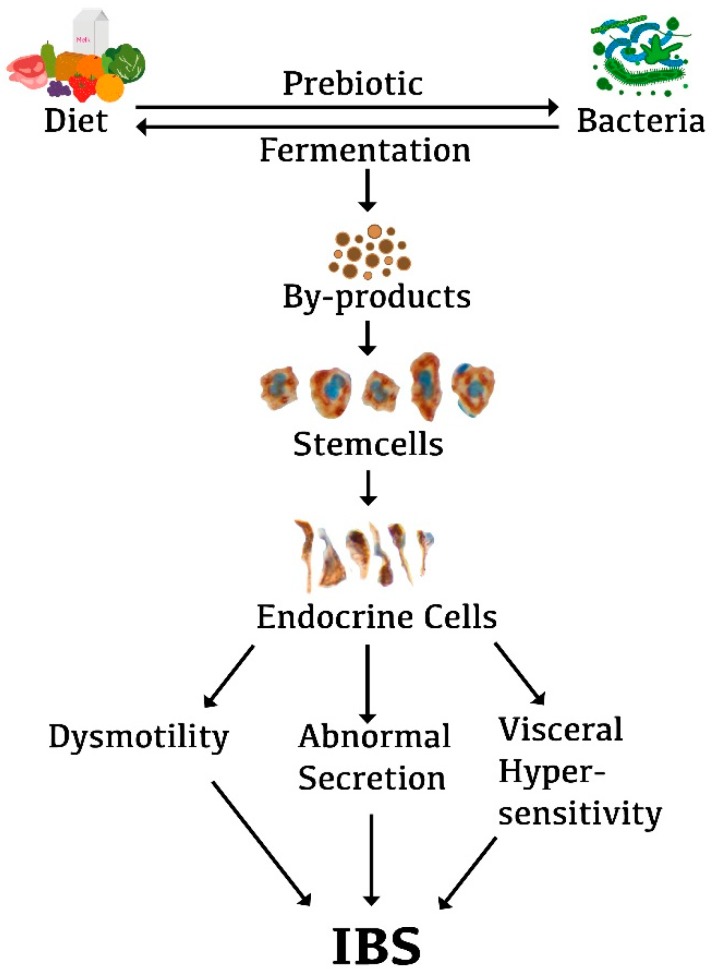Figure 5.
Schematic illustration of the possible role of the interaction of diet, gut microbiota, and gut endocrine cells in the pathophysiology of IBS. The foods we ingest act as prebiotics that favor the growth of a certain type of bacteria. These bacteria in turn ferment the diet, resulting in by-products. These by-products may act on the stem cells in a way that reduces their number. This in turn would result in a low density of gut endocrine cells. The low density of gut endocrine cells gives rise to the gut dysmotility, visceral hypersensitivity, and abnormal gut secretion that are seen in IBS patients.

